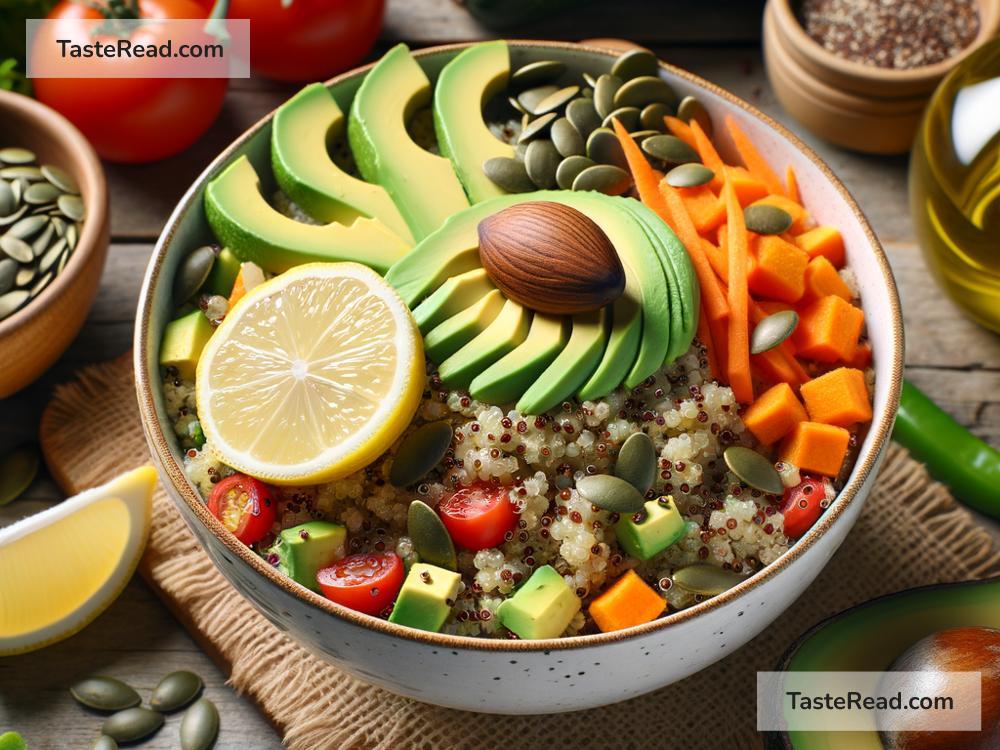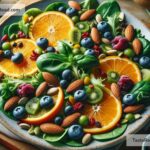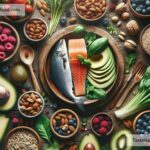Foods That Reduce the Risk of Malabsorption: Simple Tips to Boost Your Health
Malabsorption happens when your body has trouble absorbing nutrients from the food you eat. This can lead to serious health problems, as your body needs vitamins, minerals, proteins, and fats to function properly. Conditions like celiac disease, Crohn’s disease, lactose intolerance, or even certain infections can cause malabsorption. Fortunately, choosing the right foods can help reduce the risk of malabsorption and improve your nutrient intake.
Here’s a simple guide to understanding how the right foods can make a difference for your digestive health and overall wellbeing.
What Is Malabsorption?
When you eat food, your body breaks it down into smaller pieces so nutrients can be absorbed in the intestines. If something disrupts this process, your body might not get the nutrients it needs. Symptoms of malabsorption include bloating, diarrhea, fatigue, weight loss, and even skin problems. The key to managing this issue is eating foods that are easy on your digestive system and full of essential nutrients.
Foods That Support Nutrient Absorption
Here are some foods that can improve digestion and help prevent malabsorption:
1. Fermented Foods
Fermented foods, such as yogurt, kefir, sauerkraut, and kimchi, contain probiotics. Probiotics are beneficial bacteria that support a healthy gut. These bacteria help break down food and improve nutrient absorption. For people with conditions like lactose intolerance or irritable bowel syndrome (IBS), eating fermented foods can ease digestion and reduce symptoms.
2. Fiber-Rich Foods
Fiber plays an essential role in your digestive health. While soluble fiber (found in oats, apples, and carrots) helps regulate digestion, insoluble fiber (found in whole grains, nuts, and leafy vegetables) supports bowel movement and prevents constipation. However, people with severe malabsorption or inflammatory diseases may need to limit insoluble fiber, so choose fiber-rich foods based on your individual needs.
3. Foods High in Healthy Fats
Your body needs fat to absorb fat-soluble vitamins like A, D, E, and K. Healthy fat sources include avocados, nuts, seeds, olive oil, and fatty fish like salmon. These foods provide essential fatty acids without putting too much strain on your digestive system. Avoid trans fats or fried foods, as these can worsen digestive issues.
4. Gluten-Free Options
For people with gluten sensitivity or celiac disease, gluten can damage the intestines and interfere with nutrient absorption. Switching to gluten-free grains like rice, quinoa, millet, and buckwheat can prevent irritation and create a healthier digestive environment.
5. Bone Broth
Bone broth is a soothing, nutrient-packed food that’s easy to digest. It contains amino acids, collagen, and minerals like magnesium and calcium, which support gut health. Bone broth can be particularly helpful for individuals recovering from gut inflammation or nutrient deficiencies.
6. Cooked Vegetables
Raw vegetables are harder to digest for some people with malabsorption issues. Cooking vegetables softens their fibers and makes them easier on the gut. Steamed, boiled, or roasted vegetables like carrots, zucchini, spinach, and sweet potatoes are great options because they’re nutrient-dense and easy to digest.
7. Bananas
Bananas are a gentle food that is easy to digest and full of essential nutrients, like potassium and vitamin B6. They can help stabilize electrolyte levels, especially if you’re experiencing diarrhea or dehydration due to malabsorption.
8. Lean Proteins
Proteins are essential for tissue repair and maintaining a healthy body. Skinless chicken, turkey, fish, eggs, and tofu are lean protein sources that tend to be easier on the stomach. Avoid processed meats, as they may contain additives that irritate the gut.
9. Ginger and Turmeric
These natural spices have soothing properties for the digestive system. Ginger improves digestion and reduces inflammation, while turmeric supports gut health and protects against irritation. You can add them to soups, teas, or stir-fries for extra flavor and health benefits.
Foods to Avoid
Some foods make malabsorption symptoms worse and should be limited or avoided:
- Dairy Products: If you’re lactose intolerant, switch to lactose-free or plant-based milk and yogurt.
- Processed Foods: Chips, packaged snacks, and sugary treats can upset your digestion.
- Fried or Fatty Foods: These can be hard to digest and may worsen symptoms.
- Alcohol and Caffeine: Both can irritate the lining of your gut and lead to digestive trouble.
Tips for Improving Gut Health
In addition to eating the right foods, certain lifestyle changes can also help improve nutrient absorption:
- Chew Food Thoroughly: Chewing helps break food down, making it easier for your gut to handle.
- Stay Hydrated: Drink plenty of water to support digestion and nutrient transport.
- Eat Smaller Meals: Large meals can overwhelm your digestive system. Stick to smaller, frequent portions.
- Manage Stress: Stress can negatively affect your digestion. Try relaxation techniques like yoga or meditation.
- Consult a Doctor: If malabsorption persists, talk to a healthcare professional. You may need supplements or specific treatments.
Conclusion
Malabsorption can feel overwhelming, but the right foods can make a big difference. Choose nutrient-rich, gut-friendly foods like fermented products, cooked vegetables, and healthy fats, while avoiding irritants like gluten (if you’re sensitive), processed foods, and excessive dairy. Pair these dietary changes with simple lifestyle adjustments to improve your body’s ability to absorb nutrients and stay healthy.
Remember, everyone’s dietary needs are different. If you suspect you have malabsorption or a related condition, consult with a doctor or dietitian for personalized advice. A happy gut is the first step toward a healthier, more energetic life!


